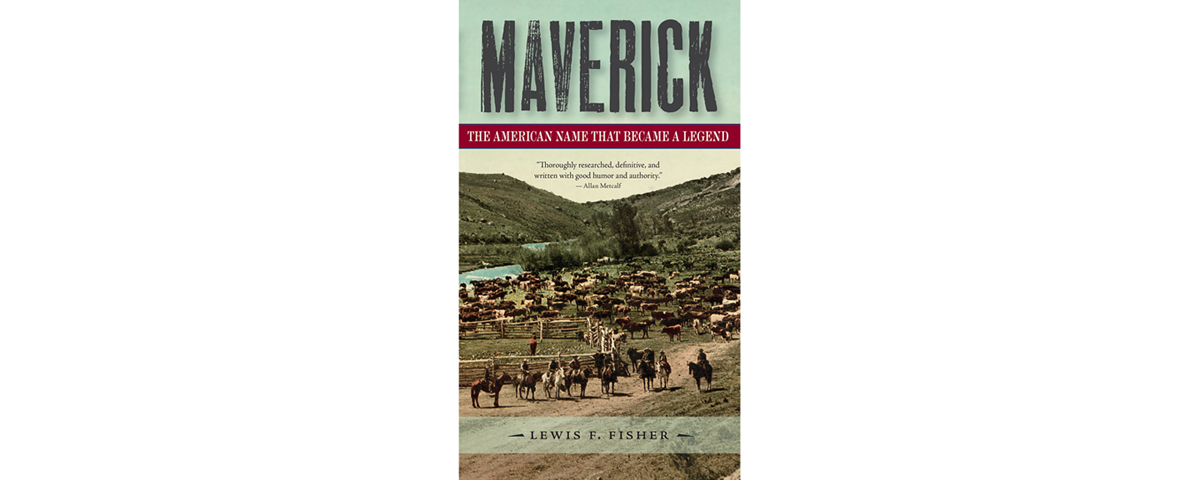Maverick: The American Name That Became a Legend, by Lewis F. Fisher, Trinity University Press, San Antonio, Texas, 2017, $18.95
The theme song to the old TV Western Maverick begins:
Who is the tall, dark stranger there?
Maverick is the name.
Ridin’ the trail to who knows where,
Luck is his companion,
Gamblin’ is his game.
It may surprise fans of the series to know there really was a Maverick in the Old West—first name Sam (not Bret, Bart, Beau or Brent)—and he need not really be a stranger these days. In 1989 Paula Mitchell Marks wrote the biography Turn Your Eyes Toward Texas: Pioneers Sam and Mary Maverick. Now comes a book that focuses on the intriguing word maverick and the confusion over the man who unwittingly inspired it. “Ironically, given its meaning as unbranded,” Lewis Fisher writes, “maverick as a brand name has gone viral worldwide.”
Born in South Carolina in 1803, Samuel Augusts Maverick moved to Texas in 1835 and fell in love with San Antonio. He barely missed the Alamo siege en route to Washington-on-the Brazos to sign the Texas Declaration of Independence. He headed back to the South soon after, then returned to Texas with his new bride, Mary Adams Maverick, in 1838. Taken to Mexico as a prisoner of war in 1842, he survived his time in Perote Prison, returned to Texas and made his home on the Matagorda peninsula where, though he was a lawyer and real estate investor, unbranded stray cattle became part of his life (he died in 1870) and legacy. In 1854 he drove cattle inland to the Conquista Ranch. Word eventually got out across south Texas that any unbranded stray cattle had been Maverick’s, soon making, writes Fisher, “Sam Maverick an eponym—a person whose name becomes a word.” And what a word it was, destined to gain familiar use in times and places far beyond the Wild West.
Sam isn’t the only maverick to get his name bandied about in this book. There were others, the author writes at the start of his chapter “The Maverick Gene,” who “were mavericks before the word, and Mavericks who were mavericks after the word gained currency.” Among the latter was Sam’s grandson Maury Maverick (1895–1955), who became a member of the U.S. House of Representatives from Texas and coined the word gobbledygook for “wordy and generally unintelligible jargon.” James Garner’s “Bret Maverick,” a fictional unconventional card player named after Texas cattleman Sam, starred in the TV Western Maverick beginning in 1957. Bart Maverick (played by Jack Kelly) soon came aboard as his brother on the popular show, but the author is wrong in saying Bart was supposed to be Bret’s twin. Never mind, a Maverick is a Maverick, and any reference to that groundbreaking show is welcome. Fisher mentions a seemingly endless number of other “Maverick” usages, from the Ford sedan to the NBA team from Dallas, not to mention an RV Park in Lajitas, Texas, and a restaurant/wine bar in San Francisco’s Mission District. But is all this Maverick talk entertaining? You bet.
—Editor





